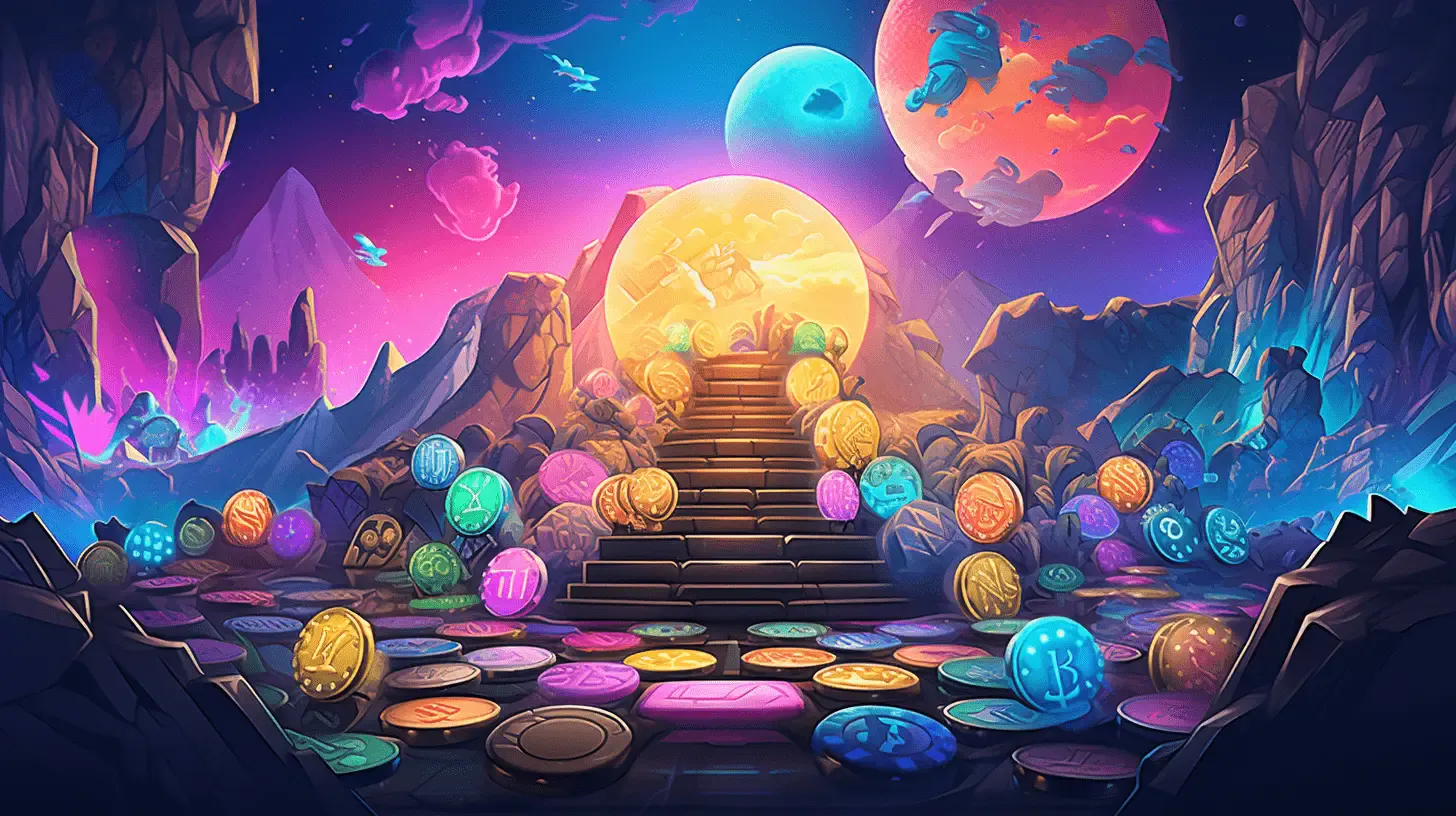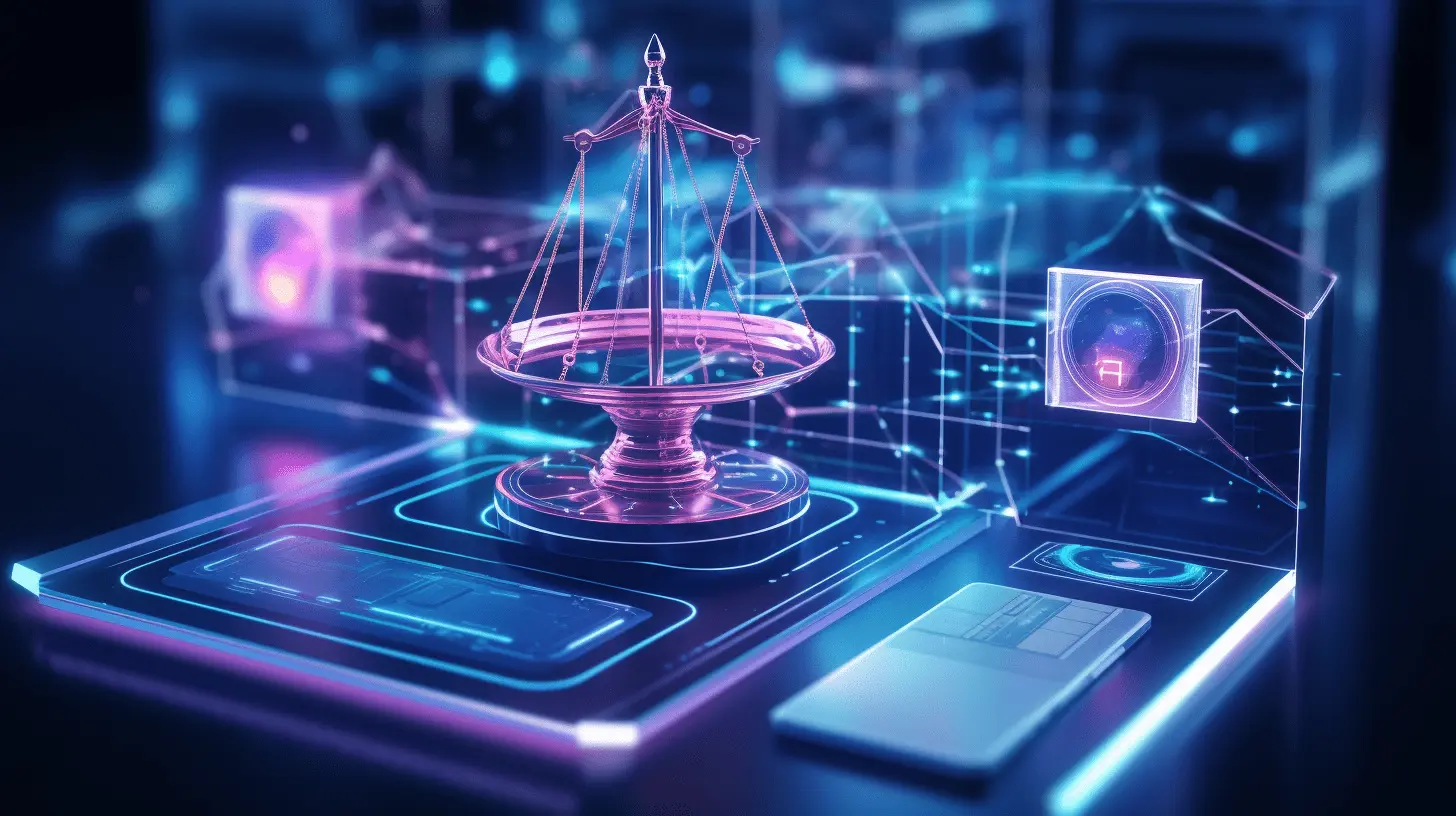Table of Contents
Smart contracts are one of the most exciting and revolutionary applications of blockchain technology. They are self-executing agreements written in code and run on a distributed network of computers.
We will explore 7 smart contract use cases that can perform various functions, such as transferring value, verifying identity, enforcing rules, and triggering events without human intervention or intermediaries.
They can work on platforms and technologies like Ethereum, Hyperledger, Corda, Tezos, etc. Each forum has its programming language, consensus mechanism, and features enabling smart contract development and deployment.
Understanding the Basics of Smart Contracts
Smart contracts, as the name implies, are computer programs that execute contractual agreements automatically without the use of intermediaries. They are based on blockchain technology, which ensures immutability and security.
These contracts are made up of code that defines an agreement’s terms and conditions. The contract is automatically executed when predefined conditions, such as a specific date or the completion of an action, are met.
Smart contracts have gotten a lot of attention in recent years because of their potential to revolutionize a variety of industries. In fact, contract management software is evolving to integrate with smart contracts, offering enhanced automation, compliance tracking, and seamless contract execution. Let’s delve deeper into the technology that powers smart contracts and consider their implications.
The Technology Behind
Smart contracts are powered by blockchain technology. Blockchain is a distributed ledger that keeps track of transactions across multiple computers, or nodes. Because it is decentralized, no single entity has control over the system.
The contracts use blockchain’s security and transparency to execute transactions securely. This decentralized infrastructure eliminates the need to rely on a centralized authority and prevents contract terms from being tampered with.
Several key features of blockchain technology make smart contracts reliable and efficient:
- Immutability: Once a smart contract is deployed on the blockchain, it is immutable, which means it cannot be changed or tampered with. This ensures that the contract’s terms and conditions are not altered without the consent of all parties involved.
- Transparency: All transactions and actions carried out within a smart contract are transparent and visible to all blockchain network participants. This transparency increases trust among parties and lowers the risk of fraudulent activity.
- Automation: Smart contracts are self-executing, which means they carry out predefined actions when certain conditions are met. This automation removes the need for middlemen, reduces human error, and streamlines the execution process.
- Security: To secure smart contracts, blockchain technology employs advanced cryptographic techniques. Each transaction in a smart contract is encrypted and linked to previous transactions, forming a chain of blocks that is impervious to tampering and hacking attempts.
The contracts have the potential to transform industries such as finance, supply chain management, real estate, and others. The contracts can reduce costs, increase efficiency, and increase trust among parties by eliminating intermediaries and automating contract execution.
As blockchain technology becomes more widely adopted, smart contracts are expected to play a significant role in shaping the future of digital transactions and contractual agreements. Their potential benefits are vast, and their impact on various industries has yet to be fully realized.
Benefits and Challenges
Smart Contracts have many benefits and challenges for various industries and sectors.
Some of the benefits include:
- Efficiency: It can automate and streamline complex and repetitive processes, saving time and resources.
- Security: Cryptography and encryption can protect data and transactions from tampering, hacking, and fraud.
- Transparency: It can ensure accountability and trust by providing complete visibility and traceability of data and transactions.
- Accessibility: It can allow anyone, regardless of location, identity, or status, to access and participate in various services and opportunities.
Some of the challenges include:
- Scalability: Due to the constraints of the underlying blockchain network, it may face speed, throughput, and capacity limitations.
- Interoperability: It can have difficulties communicating and exchanging data with other smart contracts or external systems due to the lack of common standards and protocols.
- Regulation: Due to the need for more clarity and consistency in existing laws and frameworks, it may face legal and regulatory uncertainties and risks.
- Usability: Because of the technology’s complexity and novelty, users and developers may face a difficult learning curve and a high entry barrier.
How do Smart Contracts work?
Smart contracts are programs that run according to predefined logic and agreements. These programs run on decentralized networks with ledgers that cannot be tampered with or changed after a transaction is registered. Smart contracts are a dependable method of carrying out transactions that necessitate trust, transparency, and anonymity among stakeholders.
Here’s a quick rundown of how smart contracts work:
- The parties agree on the contract’s terms and conditions and write them down in code.
- The code is run on a blockchain network like Ethereum, Binance Smart Chain, or Cardano.
- The code keeps track of the events and conditions that cause the contract to be executed.
- When the conditions are met, the contract automatically executes and transfers the agreed-upon value or performs the agreed-upon action.
- The transaction is documented on the blockchain ledger and is visible to all participants.
How do I deploy a Smart Contract on the Blockchain Network?
The process of deploying a smart contract on the blockchain network entails writing, compiling, and sending the smart contract code to the network. The steps may differ depending on the network and the tools you use.
Here are some general steps you can take:
- Create your smart contract in a programming language that is network-compatible, such as Solidity for Ethereum.
- Using a compiler, such as Solc for Solidity, compile your smart contract code into bytecode.
- To deploy your smart contract, select a network, such as a local test network, a public test network, or the main network.
- Use a provider, such as web3.js for Ethereum, to connect to the network. To pay for the deployment fees, you may need to create an account and obtain some tokens.
- Send a transaction to the network containing your smart contract’s bytecode as well as other parameters such as the gas limit, gas price, and constructor arguments.
- Wait for the network to confirm the transaction before getting the address of your deployed smart contract.
What is Solidity?
Solidity is a programming language for developing smart contracts that run on the Ethereum blockchain or on compatible virtual machines. Solidity is inspired by languages such as JavaScript, C++, and Python, and it has a syntax similar to ECMAScript.
It is a statically typed, object-oriented, contract-oriented programming language that allows for complex user-defined types, libraries, and inheritance. Solidity can be used to build a variety of applications that require trust, transparency, and security, such as voting, auctions, crowdfunding, identity management, and other similar tasks.
Now, let’s explore seven smart contract examples that will impress you. Let’s dive in!
7 Amazing Smart Contract Use Cases
These seven smart contract use cases provide real-world examples of how smart contracts can transform various industries and sectors. Finance, gaming, legal, real estate, supply chain, healthcare, and governance are all covered in these innovative use cases.
1. Decentralized Finance (DeFi)

Decentralized finance (DeFi) is a fast-growing and innovative field that uses smart contracts to enable financial services without intermediaries. DeFi seeks to establish a more welcoming, diverse, and transparent financial system accessible to anyone with an internet connection.
Some of the DeFi applications
- Lending: Users may be able to lend and borrow crypto assets without using intermediaries such as banks or brokers. Users can earn interest on deposits or borrow at lower rates based on supply and demand. Aave, Compound, MakerDAO, and other DeFi lending platforms are examples.
- Trading: Smart contracts can enable users to trade crypto assets without intermediaries, such as exchanges or brokers. Users can swap tokens directly with each other or with liquidity pools using automated market makers (AMMs). Examples of DeFi trading platforms are Uniswap, SushiSwap, Balancer, etc.
- Investing: Smart contracts enable users to invest in various crypto assets without intermediaries, such as fund managers or advisors. Users can create or join portfolios of tokens based on their preferences and risk profiles. Examples of DeFi investing platforms are Yearn, Curve, Synthetix, etc.
DeFi contracts can be improved by
- Eliminating intermediaries: DeFi smart contracts can reduce the costs, delays, and risks associated with traditional financial intermediaries. They can also increase the competition and innovation in the financial sector.
- Empowering users: DeFi smart contracts can give users more control and ownership over their financial assets and decisions. Users can also access various financial services and opportunities.
- Enhancing trust: DeFi smart contracts can provide full visibility and auditability of the financial data and transactions. They can also ensure compliance with the agreed rules and terms.
2. Non-Fungible Tokens (NFTs) and Gaming

Another smart contract use-case is Non-fungible tokens (NFTs). These unique digital assets use smart contracts to create scarcity, provenance, and ownership. NFTs can represent anything from art to music to collectibles to video games.
NFTs and gaming are a perfect match for each other. They use smart contracts to enable ownership, transfer, and monetization of digital items in gaming platforms.
Some of the NFTs and gaming platforms
- Axie Infinity: A game where players breed, battle, and trade cute creatures called Axies. Each Axie is an NFT that has its traits and skills. Tokens can be obtained by playing the game or selling Axies in the marketplace.
- CryptoKitties: A digital cat collecting, breeding, and trading game. Each CryptoKitty is an NFT that has its appearance and personality. Players can create new CryptoKitties by breeding, buying, and selling them in the marketplace.
- Decentraland: A virtual world where players create, explore, and socialize. Each piece of land in Decentraland is an NFT that can be customized and monetized. Players can buy and sell other NFTs in the marketplace, such as art, apparel, and games.
NFTs and gaming can be enhanced.
- Creating value: NFTs and gaming contracts can generate value for players and developers. Players can own and profit from their digital items, while developers can earn royalties from their creations.
- Increasing immersion: NFTs and smart gaming contracts can increase the immersion and interactivity of the gaming experience. Players can have more freedom and agency in shaping their virtual worlds and identities.
- Fostering community: NFTs and gaming contracts can foster a vibrant and diverse community of gamers and creators. Players can collaborate, compete, and trade with each other across different platforms and games.
3. Legal Contracts and Dispute Resolution

Legal contracts and dispute resolution are essential aspects of any business or transaction. However, they are often complex, costly, and time-consuming. Smart contracts can automate and enforce legal agreements and contracts without requiring lawyers or courts. Lawrina Forms provides a comprehensive platform for creating and managing legal documents efficiently, helping businesses navigate legal complexities with ease. LegalOn complements this by offering AI-driven contract review and management tools, ensuring that businesses can streamline their legal processes and reduce risks associated with contract compliance.
Some of the legal platforms
- OpenLaw: A platform that allows users to create, manage, and execute legal agreements using smart contracts. Users can draft contracts using natural language or templates, sign them digitally, and run them automatically on the blockchain.
- Clause: A platform that connects smart contracts to real-world data and events. Users can embed smart clauses into existing agreements, triggering actions or payments based on predefined conditions or external inputs.
- Kleros: A platform that provides decentralized arbitration for smart contract disputes. Users can submit their disputes to a pool of randomly selected jurors incentivized to vote honestly. The smart contract enforces the verdict.
Legal contracts can reduce costs, errors, fraud, and delays in the legal industry.
- Simplifying processes: Legal smart contracts can simplify and standardize creating, verifying, executing, and resolving legal agreements. They can also reduce the paperwork and bureaucracy involved.
- Enhancing security: Legal contracts can improve the security and integrity of legal data and transactions. They can also prevent unauthorized access or modification of the contract terms or outcomes.
- Improving efficiency: Legal smart contracts can improve the efficiency and speed of legal services and outcomes. They can also reduce the reliance on third parties or intermediaries.
4. Real Estate and Property Management

Real estate and property management are huge and lucrative markets that involve many stakeholders and transactions.
However, they are also plagued by inefficiencies, fraud, and disputes. Smart contracts can streamline and simplify real estate transactions and property management without needing agents or brokers.
Some of the real estate platforms
- Propy: A platform that allows users to buy and sell properties globally using smart contracts. Users can list their properties on the forum, verify their identity and ownership, accept buyer offers, pay securely using cryptocurrencies or fiat currencies, and transfer title deeds on the blockchain.
- Rentberry: A platform that allows users to rent properties using smart contracts. Users can search for properties on the forum, apply for rentals online, negotiate the terms with landlords, pay deposits and rent using cryptocurrencies or fiat currencies, and manage their rental agreements on the blockchain.
- Brickblock: A platform that enables users to invest in real estate through smart contracts. Users can buy tokenized shares of real estate properties on the forum, receive dividends from rental income or capital gains, sell their shares anytime on the secondary market, and verify their ownership on the blockchain.
Real estate can increase trust, speed, and convenience in the real estate industry.
- Eliminating intermediaries: Real estate smart contracts can eliminate the need for agents or brokers who charge high fees or commissions for their services. They can also reduce the risks of fraud or manipulation by third parties.
- Empowering users: Real estate contracts enable users to buy, sell, rent, or invest in properties without geographical or financial barriers. Users can also access more information and options in the real estate market.
- Ensuring compliance: Real estate smart contracts can ensure compliance with the agreed terms and conditions of the real estate transactions. They can also facilitate verifying and validating the property data and ownership.
5. Supply Chain and Logistics

Supply chain and logistics are vital and complex processes that involve many parties and stages. It’s also one of the most widely used smart contract examples. However, they are also prone to inefficiencies, errors, and fraud. Smart contracts can be used to optimize and track supply chain and logistics processes without intermediaries or manual interventions.
Some of the supply chain platforms
- VeChain: A platform that uses smart contracts and IoT devices to provide end-to-end traceability and transparency of products across the supply chain. Users can scan QR codes or NFC tags to access real-time information about the product’s origin, quality, location, etc.
- OriginTrail: A platform that uses smart contracts and decentralized identifiers (DIDs) to create verifiable and interoperable data exchange across the supply chain. Users can create or join decentralized knowledge graphs (DKGs) that link data from different sources and systems.
- ShipChain: A platform that uses smart contracts and blockchain-based freight tracking to improve the efficiency and security of the shipping industry. Users can monitor and manage their shipments using a unified dashboard that provides live updates, alerts, and reports.
The supply chain can improve visibility, accountability, and efficiency in the supply chain industry.
- Eliminating intermediaries: Supply chain smart contracts can eliminate the need for intermediaries or mediators who add costs or delays to the supply chain processes. They can also reduce the risks of corruption or manipulation by third parties.
- Empowering users: Supply chain contracts can enable users to access and share reliable and relevant data across the supply chain. Users can also collaborate and coordinate with each other more effectively.
- Enhancing trust: Supply chain smart contracts can improve trust among the supply chain stakeholders. They can also ensure compliance with the standards and regulations of the industry.
6. Healthcare and Medical Records

Healthcare and medical records are crucial and sensitive data that affect the well-being and privacy of individuals and communities.
However, they are also fragmented, insecure, and inaccessible. Smart contracts can be used to protect and share healthcare and medical records while maintaining quality and confidentiality.
Some of the healthcare platforms
- Medicalchain: A platform that uses smart contracts and blockchain-based electronic health records (EHRs) to empower patients to own and control their health data. Using a mobile app, users can grant or revoke access to their data to various healthcare providers or researchers.
- MediBloc: A platform that uses smart contracts and blockchain-based personal health records (PHRs) to improve interoperability and portability of health data. Users can store, update, and transfer their data across different platforms or devices using a QR code.
- Healthereum: A platform that uses smart contracts and blockchain-based health rewards to incentivize healthy behaviors and outcomes. Users can earn tokens by completing tasks or surveys related to their health conditions or treatments.
Healthcare can enhance patient care, safety, and empowerment in the healthcare industry.
- Simplifying processes: Healthcare smart contracts can simplify and standardize storing, updating, and sharing health data. They can also reduce the paperwork and bureaucracy involved.
- Enhancing security: Healthcare contracts can improve the security and privacy of health data and transactions. They can also prevent unauthorized access or modification of the data or outcomes.
- Improving quality: Healthcare smart contracts can improve the quality and accuracy of health data and services. They can also provide feedback and incentives for better health behaviors and outcomes.
7. Decentralized Autonomous Organizations and Governance

Another smart contract example in our list is Decentralized autonomous organizations (DAOs). These are self-governing organizations that use smart contracts to create and enforce rules without central authority or hierarchy. DAOs can operate in various domains, such as social, economic, political, etc.
Some of the DAOs
- MakerDAO: A DAO that governs the creation and stability of a decentralized stablecoin called DAI. Users can participate in the governance of MakerDAO by holding and voting with a governance token called MKR. Users can also borrow DAI by locking up collateral in smart contracts.
- Aragon: A platform that allows users to use smart contracts to create and manage DAOs. Users can customize their DAOs with different modules like voting, finance, identity, etc. Users can also join or interact with other DAOs on the platform.
- MolochDAO: A DAO that funds public goods and projects in the Ethereum ecosystem. Users can join MolochDAO by pledging ETH or tokens to a common pool. Users can also propose or vote on grants for different initiatives or causes.
DAOs can foster collaboration, innovation, and democracy in various domains.
- Eliminating intermediaries: DAOs smart contracts can eliminate the need for intermediaries or leaders with conflicts of interest or biases. They can also reduce the costs or risks associated with centralized governance.
- Empowering users: DAOs contracts can give users a voice and a stake in the organizations they belong to or support. Users can also access and contribute to various opportunities and projects.
- Enhancing trust: DAOs smart contracts can improve trust among the members and stakeholders of the organizations. They can also ensure compliance with the vision and values of the organizations.
Conclusion
In conclusion, Smart Contracts have undoubtedly revolutionized the way we conduct business and execute agreements in the digital age. Their potential for automation, transparency, and security is unparalleled, making them a vital tool for organizations seeking to streamline their operations and boost trust among stakeholders. However, harnessing the full power of Smart Contracts requires expertise and precision in their development.
That’s where HyScaler’s Smart Contract and Blockchain Development Services come into play. With a team of experienced blockchain developers and a track record of successful projects, HyScaler is your trusted partner in designing, deploying, and managing Smart Contracts tailored to your specific needs. Whether you’re a startup looking to integrate blockchain technology or an enterprise seeking to optimize your existing processes, HyScaler’s expertise will ensure your Smart Contracts are built to perfection, facilitating efficient, secure, and transparent transactions. Contact HyScaler today to unlock the full potential of Smart Contracts for your business.